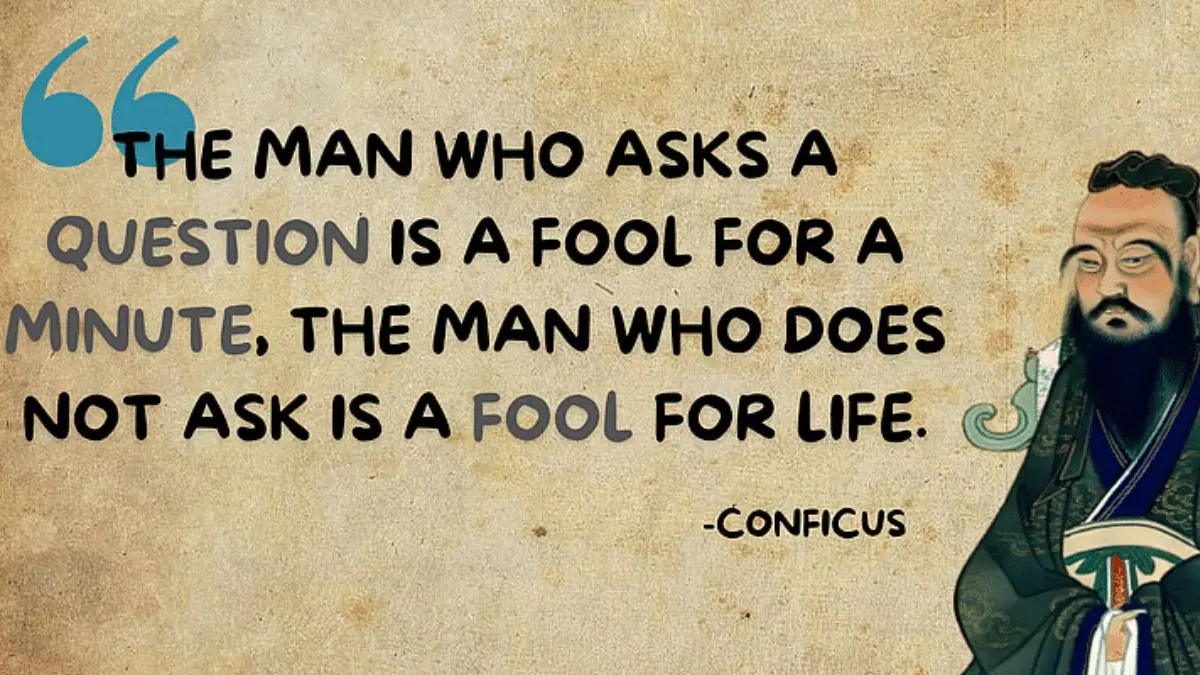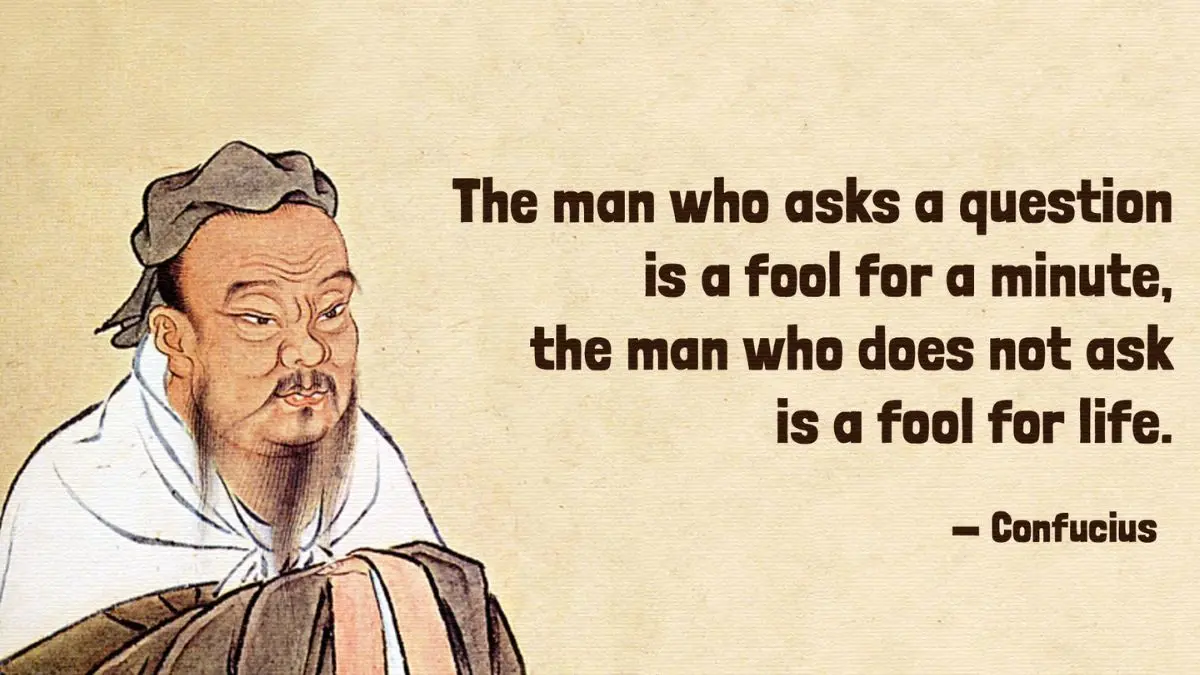- This fear often holds people back from asking questions, especially in public or professional settings.
- We’ll explore psychological perspectives on why we fear appearing foolish and how overcoming this fear can lead to…
- In the context of education, this quote underscores the importance of fostering an environment where asking questions is…
- In the professional world, the ability to ask the right questions is often more valuable than having all the answers.
- We’ll discuss how asking questions can lead to better decision-making, problem-solving, and innovation in the work…
- We’ll leave readers with practical tips on how to cultivate a habit of asking questions and fostering a curious mi…
In a world brimming with information and diverse perspectives, the quote “The man who asks a question is a fool for a minute, the man who does not ask is a fool for life” resonates more profoundly than ever. This ancient proverb, often attributed to Confucius, speaks volumes about the value of curiosity and the perils of silent ignorance. In this blog, we will delve into the layers of this quote, exploring its implications in various facets of life including personal growth, education, professional development, and societal progress.
The Fear of Appearing Foolish
The first part of the quote addresses a common human fear: the apprehension of appearing ignorant or foolish. This fear often holds people back from asking questions, especially in public or professional settings. However, embracing the brief moment of vulnerability when asking a question is crucial for learning and understanding. We’ll explore psychological perspectives on why we fear appearing foolish and how overcoming this fear can lead to more profound knowledge and self-awareness.
The Perpetual Fool: Consequences of Not Asking
The second part of the quote serves as a warning: the true fool is not the one who asks questions, but the one who chooses to remain silent. This silence, often a result of pride, fear, or indifference, can lead to a lifetime of ignorance. We’ll examine historical examples where the failure to ask critical questions had dire consequences, and contrast these with instances where inquisitive minds led to groundbreaking discoveries and innovations.
Educational Implications
In the context of education, this quote underscores the importance of fostering an environment where asking questions is encouraged. We’ll delve into educational philosophies and teaching methods that prioritize inquiry over rote learning, highlighting how this approach not only enhances knowledge retention but also cultivates critical thinking skills.
Professional and Personal Development
In the professional world, the ability to ask the right questions is often more valuable than having all the answers. We’ll discuss how asking questions can lead to better decision-making, problem-solving, and innovation in the workplace. Additionally, we’ll explore how this principle applies to personal development, emphasizing the role of curiosity in self-improvement and life-long learning.

The Societal Value of Questioning
Beyond individual implications, the quote reflects a broader societal value. In democratic societies, the ability and willingness to question is foundational to progress and justice. We’ll investigate how questioning authority and established norms has been instrumental in social and political movements, and how this continues to shape our world today.
The Role of Culture and Environment
Our inclination to ask questions is often influenced by cultural and environmental factors. Some cultures encourage questioning as a sign of intelligence and engagement, while others may see it as a challenge to authority or a breach of etiquette. We’ll compare these cultural differences and discuss the impact of growing up in environments that either stifle or stimulate curiosity.
The Digital Age: Information Overload and the Need for Critical Questioning
In the age of information overload, the ability to ask pertinent questions becomes even more crucial. With the internet offering an endless stream of data and opinions, discerning what to believe requires a critical, questioning mind. We’ll examine the challenges and opportunities that the digital age presents for inquiry and knowledge acquisition.
Conclusion: Embracing the Fool for a Minute
In conclusion, the quote “The man who asks a question is a fool for a minute, the man who does not ask is a fool for life.”, advocate for embracing the ‘fool for a minute’ within us. By acknowledging that asking questions is an integral part of learning and progress, we can overcome the fear of appearing foolish and open ourselves to a lifetime of learning and growth. We’ll leave readers with practical tips on how to cultivate a habit of asking questions and fostering a curious mindset in various aspects of life.
Also Read: Just one small positive thought in the morning can change your whole day



